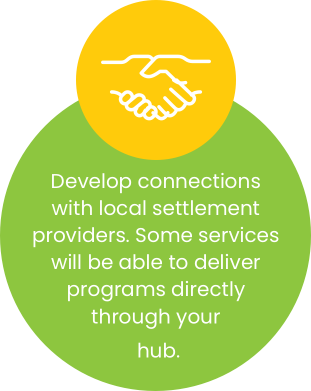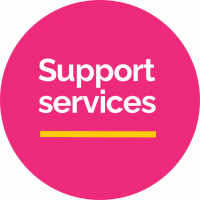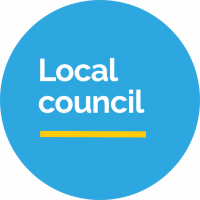Community hubs serve as gateways for families to access existing services, filling the gaps rather than duplicating existing services.
Ways to get to know your local support services include:
- Asking your support coordinator to connect you.
- Inviting representatives from local services to your hub leader meetings.
- Finding which service network meetings are most valuable, and if your support coordinator isn’t attending this network, arranging to receive minutes by email.

Collaborate with other support agencies and CHA to share local stories.
- Actively participate in national meetings chaired by CHA, at least quarterly.
- Openly participate in collaborative activities with other support agencies in the national network.
- Support, and in some cases deliver, the rollout of hub leader professional development training provided through the NCHP.
- Collect and share local stories through the NCHP network via established channels.

Handy resources for your hub leaders
Learn about your community
Some tips and ideas about how to explore what their hub community has and what it needs.
How family friendly is your school?
A checklist for hub leaders
to work through with hub families.
How to sustain a partnership
A guide to evaluating and sustaining community partnerships.
What can I do for hub leaders?

Encourage them to build strong relationships with local agencies and services.
Particularly those organisations that may offer services to support families. They know their clients well and can personally introduce them to you and the hub. Your hub leaders may ask for guidance around this from you and the other hub leaders in your local area network.

Advise hub leaders to develop connections with the local council.
Particularly the children and family services, community development and social cohesion teams. Other sections of the council that may be useful for hub leaders to connect with include the community education, allied health, grants, and sport and recreation teams.